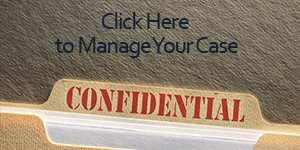Cyber Crime: Don’t be a victim
Re-Post from Username Search
Cyber Crime: Dont be a victim

Cyber Crime: Dont be a victim
Identity thieves, hackers and other cyber criminals are lurking in every corner of the Internet. Reports on cyber crime give an alarming and intimidating picture. No one is safe; you are watched 24/7 by some unscrupulous characters who are either out to defraud you by using your personal information or looking for the first opportunity to take your hard earned money. In this world it is not good to have a naïve attitude to when it comes to cyber security. If you are forewarned you should take the necessary precautions to make sure that your information is protected. The following points should be given the utmost importance if you are to keep yourself safe in the crime ridden world wide web.
Cyber crime is an unfortunate reality that can affect anyone at anytime. However, if you take steps to protect your information and utilize the latest Internet security technology available, you should be able to protect your information. The key is to be aware of the dangers and the most effective methods to protect yourself, your information and your money. It is worthwhile to look at the options that are available to enhance cyber security as if you leave it all to chance, you could easily fall victim to cyber crime.
Believe it or not, these criminals do their homework. I’m not talking about the broadly spread, fake bank e-mails you receive daily. These cyber-terrorists actually research your Web site, search for executive’s names, look at your press release page, identify events and refer to them in their messaging. A surprising number of executives click on the attachments or links … and the damage is done. The compromised system looks for other local machines, and because your system is behind your corporate firewall, which is now of no value, it attempts to exploit them through well-known vulnerabilities.
Eventually, the criminals end up infecting the controller’s or accountant’s computer. Once that occurs, they monitor traffic, log connections to your bank and capture your log-in credentials. At that point, you’re done for. Just before your bank’s closing time, the criminals log in to your account and set up a series of wire transfers.
By the time you get to work the next morning, your account is empty. Now you’re left struggling to figure out what happened, and how to get your funds back. Sometimes you catch a lucky break, but more often than not you lose everything.
The safety of the devices that you use to go online should not be underestimated. Devices commonly used today include computers, mobile phones and tablets. These are all vulnerable to cyber crime. There is always the risk of your device being lost or stolen. Be careful where you keep them and how you carry the devices that are portable. If a thief gets their hands on any of your devices they can easily access your information in most cases, even if you have a password. Computers in particular are vulnerable to hackers and viruses that can break in and access your information without having any physical contact with your device. Make sure that you have powerful antivirus software installed on your computer/laptop and keep a back up of your important files.
-
High Quality Passwords
Studies show that many people choose their passwords carelessly. Your password should be strong enough to prevent other people guessing it but simple enough so that you can remember it. You should ideally use a password that is alphanumeric and it’s a good idea to also use a symbol. Too many people choose their password bearing in mind only their personal convenience. If you use your date of birth, place of birth or wedding anniversary as your password – you are heading for trouble. That is like keeping the doors to your house open at night, with all your valuable things just lying around in the front room of the house. Do you know that there are clever cyber criminals who can create password cracking programs designed to analyze thousands of password possibilities and guess them with reasonable accuracy? You always want to use a password that would be near impossible for someone (or some computer) to guess and never write it down or send it to anyone online.
Cyber criminals are wonderful creative artists. The only problem is that they use their creativity to take money from other people’s pocket. Be wary of unsolicited emails and phone calls. The emails are usually drafted so skillfully, that people will easily fall victim to their tricks. Authentic looking testimonials, real letter heads and true logos are used so that even the cleverest of guys will believe in them, but let’s be honest, how could you win the lottery when you didn’t even buy a ticket? You may not believe it but people who fall victim to cyber criminal’s tricks include even police officers and doctors who were relieved of thousands of dollars by these criminals. When it comes to emails that sound too good to be true – they usually are.
-
Check online identities for duplicates
Use a website like Usersearch.org to check if your username or other information is being used online without your permission. This is a good way to catch cyber criminals in the act. If your  username, mobile number or even your email is being used online by someone else, a simple search on Usersearch.org can quickly bring this to your attention so that you can take the necessary steps to correct the situation. You should do this type of check regularly as you never know when someone is out to defraud you of your hard earned money.
username, mobile number or even your email is being used online by someone else, a simple search on Usersearch.org can quickly bring this to your attention so that you can take the necessary steps to correct the situation. You should do this type of check regularly as you never know when someone is out to defraud you of your hard earned money.
-
Separate banking tasks.
Buy a cheap laptop and dedicate it to banking alone. Don’t use it for e-mail, and never browse the internet. Log on to your bank, do your banking, log off, disconnect it from the internet and power it off.
-
Establish secure confirmations.
Ask your bank to implement a positive mechanism, which ensures that unless a wire transfer is pre-notified to them, they must call you for voice confirmation. In the US, this is known as “positive pay.
-
Safeguard the internet.
Establish strict rules for employees regarding their use of the internet. Show them some of the real-world stories about cyber-terrorism and how it can affect their employment.
-
Keep your information safe.
Internet hygiene goes a long way in keeping your information safe. Keep anti-virus programs and patches up to date, and never click on attachments or links in e-mails you don’t absolutely trust.
Keeping your finances in check and your company’s important information under lock and key isn’t as hard as it seems. A few simple steps like those listed above can go a long way in ensuring you never experience the heartbreak of bankruptcy as a result of online vulnerabilities. In the end, the best way to stave off cyber- terrorism is to be armed with the right information and put in place processes that keep you and your company safe.
 Posted by admin
Posted by admin- Posted in Case Studies, Cyber Investigations, Investigation, Mobile Forensics
 Oct, 23, 2015
Oct, 23, 2015 No Comments.
No Comments.







